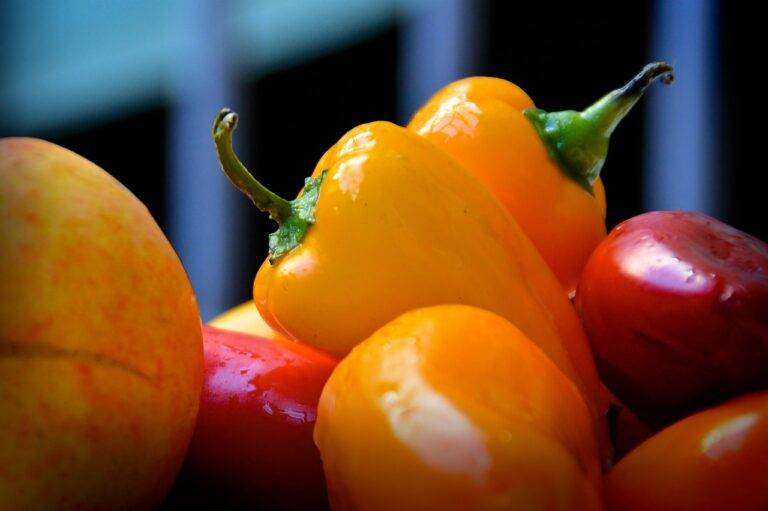The Importance of Farmer Collaboration in Sustainable Agriculture: Allpaanel, Cricket bet 99, Lotus 365.win
allpaanel, cricket bet 99, lotus 365.win: As sustainable agriculture continues to gain importance in today’s world, farmer collaboration plays a key role in promoting this practice. By working together, farmers can share knowledge, resources, and best practices to create a more sustainable and resilient agricultural system. In this article, we will discuss the importance of farmer collaboration in sustainable agriculture and how it can benefit both farmers and the environment.
The Power of Collaboration
Collaboration among farmers is essential for promoting sustainable agriculture for several reasons. First and foremost, it allows farmers to pool their resources and expertise to address common challenges such as soil erosion, water scarcity, and pest control. By working together, farmers can develop innovative solutions that benefit the entire community.
Collaboration also enables farmers to access new markets and improve their incomes. By joining forces, farmers can collectively market their products to larger buyers and negotiate better prices. This can help small-scale farmers increase their profitability and sustainability in the long run.
Furthermore, farmer collaboration fosters a sense of community and solidarity among farmers. By working together, farmers can share their knowledge and experiences, build relationships, and support one another in times of need. This creates a strong network of support that can help farmers weather the ups and downs of agriculture.
The benefits of farmer collaboration are not limited to the farmers themselves. By promoting sustainable practices, such as crop rotation, organic farming, and agroforestry, farmers can help protect the environment and mitigate climate change. Sustainable agriculture practices can reduce greenhouse gas emissions, conserve water and soil resources, and promote biodiversity. By working together, farmers can have a greater impact on the environment and contribute to a more sustainable future for all.
Challenges and Solutions
While farmer collaboration offers many benefits, it is not without its challenges. One of the biggest obstacles to collaboration is the lack of trust and communication among farmers. In some cases, farmers may be hesitant to share their knowledge and resources with others for fear of competition or exploitation. Building trust among farmers is essential for successful collaboration. Farmers can overcome this challenge by investing time and effort in building relationships, sharing information openly, and communicating effectively.
Another challenge to farmer collaboration is the lack of infrastructure and support systems. Many farmers, especially in developing countries, lack access to basic resources such as transportation, storage facilities, and market information. Governments and organizations can help address this challenge by investing in rural infrastructure, providing training and technical assistance to farmers, and facilitating collaborations through partnerships and networks.
Despite these challenges, there are many successful examples of farmer collaboration around the world. In India, for example, farmer cooperatives have helped small-scale farmers access markets, improve their incomes, and adopt sustainable farming practices. In Africa, farmer networks and extension services have played a key role in promoting sustainable agriculture and improving food security. By learning from these success stories and sharing best practices, farmers can overcome obstacles to collaboration and create a more sustainable agricultural system.
FAQs
Q: How can farmers benefit from collaboration in sustainable agriculture?
A: Farmers can benefit from collaboration in sustainable agriculture by pooling their resources, accessing new markets, improving their incomes, and protecting the environment.
Q: What are some ways farmers can collaborate with each other?
A: Farmers can collaborate with each other by forming cooperatives, networks, and partnerships, sharing knowledge and resources, and working together to address common challenges.
Q: How can governments and organizations support farmer collaboration in sustainable agriculture?
A: Governments and organizations can support farmer collaboration in sustainable agriculture by investing in rural infrastructure, providing training and technical assistance to farmers, and facilitating collaborations through partnerships and networks.
In conclusion, farmer collaboration is essential for promoting sustainable agriculture and building a more resilient food system. By working together, farmers can share knowledge, resources, and best practices to address common challenges, access new markets, and protect the environment. Despite the challenges of collaboration, there are many successful examples of farmer collaboration around the world that demonstrate the potential for positive change. By overcoming obstacles and fostering strong relationships, farmers can create a more sustainable future for themselves and future generations.







